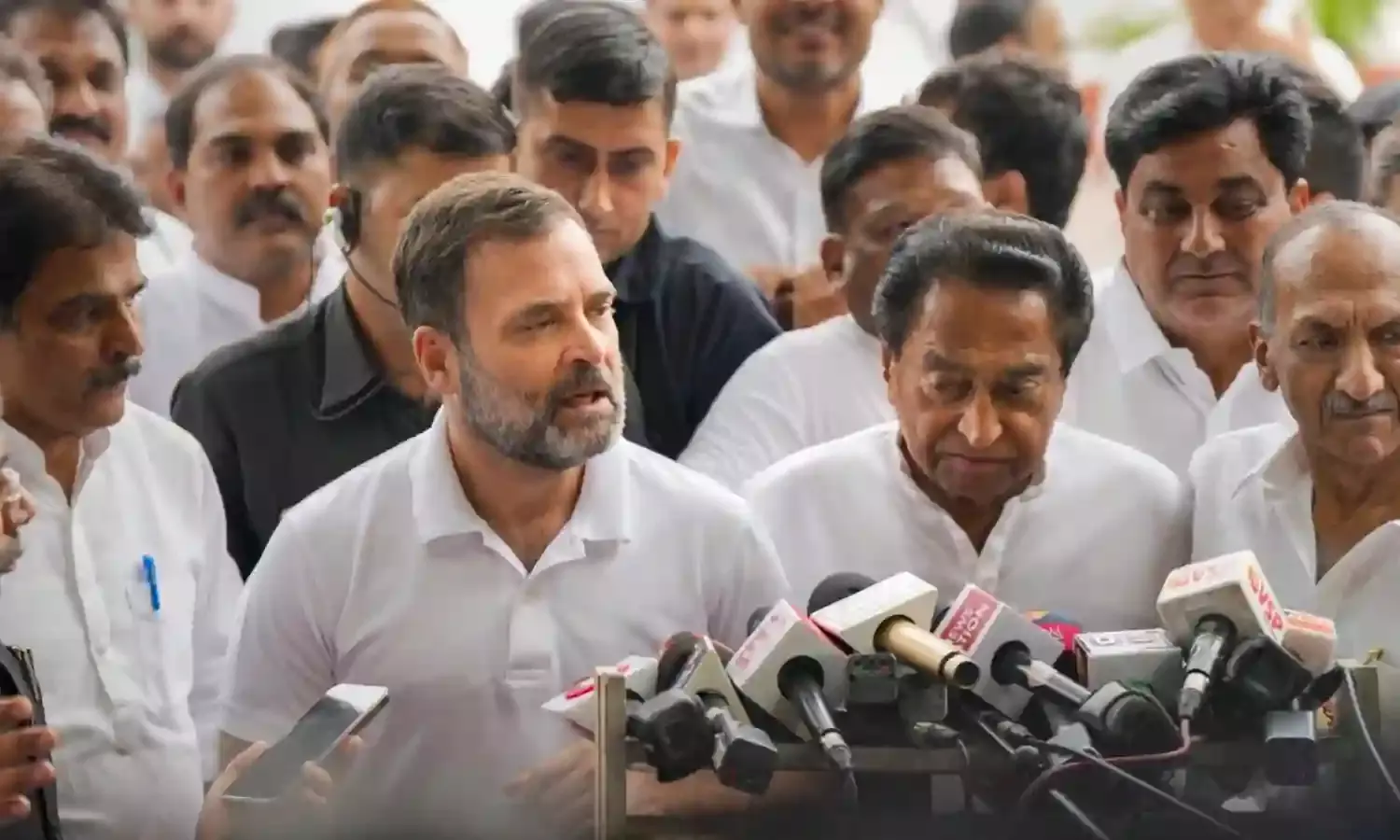Madhya Pradesh: Congress' Caste Census Strategy Sparks Concerns
Elections with The Citizen: Caste votes are a double-edged sword;

As Madhya Pradesh gears up for the upcoming elections, a narrative of evolving allegiances and strategic dilemmas unfolds. Both the Bharatiya Janata Party (BJP) and Congress are deeply immersed in last-minute preparations, and meticulous booth management.
Congress, the grand old party, is placing significant emphasis on its caste census agenda to appeal to backward communities. However, experts and available data indicate that the party's heavy reliance on the caste census is a double-edged sword, with the potential to harm Congress, as much as it can help in navigating the electoral battle.
This is particularly concerning given that the difference in vote share between the two political entities has consistently remained within the narrow margin of 1-1.5 percent.
Conversations with ‘upper-caste’ voters in urban areas reveal a discernible pattern that implies growing discontent against Congress’ pitch for the caste census. Some accuse the party of promoting caste-based politics, adding an additional layer of complexity to the electoral landscape.
Vikas Singh, a 38-year-old who runs a grocery shop in Sarafa Bazaar in old Bhopal, believes that too much emphasis on caste lines will dent Congress's traditional image as a party for all, irrespective of caste and creed.
“We have generally supported the Congress party due to its universal appeal that cuts across caste and religion. However, with this upcoming election, the charm of the old Congress seems to be fading away. They appear to be shifting towards the politics of parties like Samajwadi and BSP, who seek votes on the basis of caste,” Singh said.
Sidhant Kumar, a 32-year-old interior designer based in Indore, expresses his concern that the Congress is fragmenting the larger Hindu unity and undermining the broader Hindu cause by emphasising caste divisions.
“I cannot definitively state who I will vote for, but I am certain it won't be for those who contribute to disrupting Hindu unity and diluting the essence of Hindutva. Unfortunately, Congress, as always, appears to be engaging in what it excels at,” Kumar said.
He emphasised that the party's insistence on highlighting caste distinctions is perceived as a deviation from a unified Hindu identity. He suggested that the focus on caste politics may hinder the larger cause of Hindutva, which traditionally seeks to unite Hindus beyond caste lines.
In this election season, Kumar’s sentiments reflect a growing sentiment among certain segments of the electorate in Urban Madhya that Citizen spoke to.
The upper castes, including Brahmins, Thakurs, Baniyas, and Kayasths, collectively constitute approximately 17 percent of the state's population, as indicated by data cited in Christophe Jaffrelot's book, "Rise of the Plebeians." Notably, these communities hold an even more substantial presence in regions such as Malwa, Bundelkhand, and Bagelkhand.
Long-time political observer N. K. Singh concurs that the emphasis on the caste census might erode Congress's upper-caste vote bank. However, he remains cautious, pointing out that definitively asserting its impact on electoral results is challenging. This scepticism stems from the recognition that there has already been a gradual erosion in Congress's ‘upper caste’ vote in the past few elections.
“It is true that overemphasising the caste census might hurt the ‘upper caste’ vote of the Congress, but it is also important to note that Congress does not enjoy the support of ‘upper caste’ voters in the state as it did earlier. There was already an erosion of it, though it improved to an extent in the last election. I still think that the gains may be bigger than the losses on this issue,” Singh pointed out.
Historically, the Congress party enjoyed the support of the ‘upper caste’ community, but recent elections have witnessed a notable shift in this trend. For example, data from CSDS poll surveys underscores this transformation. In 2008, about 45% of the ‘upper caste’ electorate voted for the Bharatiya Janata Party, while only 19% cast their votes in favour of the Congress.
Similarly, in 2013, approximately 59% of ‘upper caste’ voters favoured the BJP, with only 24% supporting the Congress. This pattern persisted in 2018, as around 58% of ‘upper caste’ voters backed the BJP, while 33% opted for the Congress.
There is also discomfort among the leadership in the state leadership of the Congress party, mostly comprising ‘upper caste’ leaders. Out of a total of 230 candidates, the party has nominated 36 percent (83 candidates) from the ‘upper castes’.
“This kind of politics will only hurt us in the long run as it will open up space for regional parties in the state; it might also revamp parties like BSP that already have a significant presence in the state," a Congress leader told The Citizen on condition of remaining anonymous.
He also insisted that since the BSP and Samajwadi Party are already in the electoral fray, they would further erode Congress's lower-caste votes to some extent, and the neutralisation of upper-caste votes could offset this.
“If BSP and SP candidates take away even a few thousand votes, the ‘upper caste’ vote, standing at around 15 percent in the state, would matter a lot. The caste census will impact us here too when the expected margin of victory is around 1 percent,” he added.

